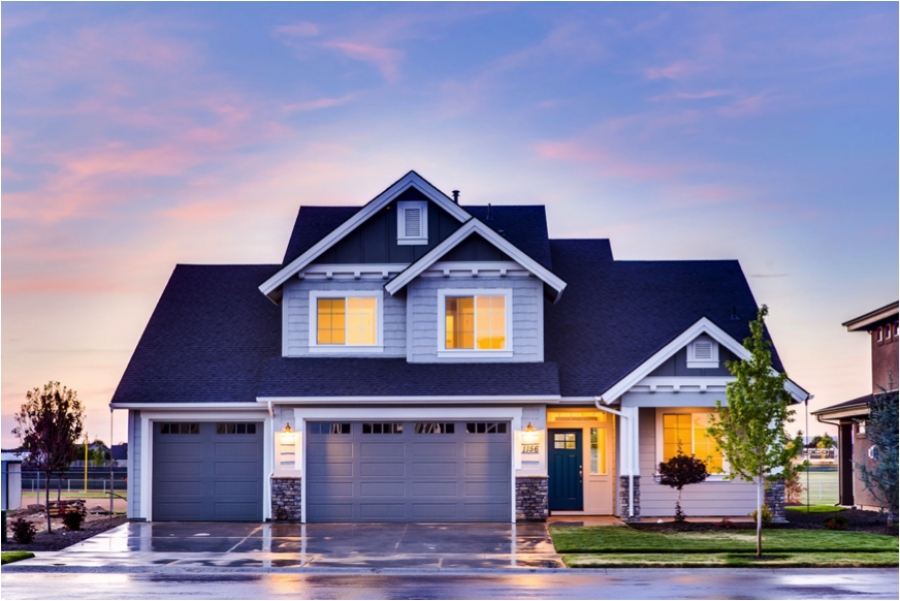Homeowner’s insurance is just part of owning a home. If you’re financing your home, it’s almost impossible to find a lender that will underwrite your home loan without insurance — and even if you buy your home with cash, not having homeowner’s insurance is courting financial disaster.
There are many common factors that affect home insurance rates: location, age of the house, building materials, and so on. But there are some other factors influencing your home insurance rates that you might not expect.
A Fireplace or Wood-Burning Stove
Having a cozy fireplace to curl up next to or a homey wood-burning stove is the stuff of many prospective homeowner’s dreams. But these amenities can also raise your insurance rates. Standard homeowners insurance already covers accidental fires and smoke damage, but fireplaces and wood-burning stoves represent an elevated risk for insurers. You might find your rates going up, or you may even have to purchase additional insurance specifically for the hazard posed by having these amenities in your home.
One way you can minimize the risks and higher insurance rates is to make sure to have it professionally inspected and / or provide your insurer proof the fireplace or stove was installed by a licensed contractor and meets the necessary code. Installing a smoke detector near the stove, having a fire extinguisher handy, and knowing how to properly maintain your fireplace or stove, can also make a big difference. Different insurers may have different attitudes toward these amenities, so be sure to shop around and compare home insurance quotes.
Proximity to a Fire Department
Speaking of fire: your home insurance rates could go down if your home happens to be near a fire station or department. Homes in rural areas generally don’t have as much fire protection, and might not receive these discounts, but if you live in an urban or suburban area, you could get a substantial discount on your homeowners insurance.
Location
In this case, when we say “location,” we don’t mean whether or not the home is in a high-value neighborhood, but rather what the conditions are like where you live. For example, homes nearer the coastline may be more prone to hurricane, flooding, or storms, while homes built near the woods might be more susceptible to wildfires. Similarly, if you live in an area that has frequent earthquakes, your insurance may go up because of the greater risk involved. In some cases, as with having a fireplace or wood-burning stove, you may have to purchase separate insurance for specific risk factors.
Crime rates in an area can also affect insurance rates, even if they’re not long-standing — a rash of crimes over a short length of time could affect your premiums, whether the area is “known for it” or not.
Swimming Pools and Trampolines
Swimming pools and trampolines are frequent items on a homeowners’ wish list, but unfortunately, they too can mean higher insurance premiums. Like fireplaces and wood-burning stoves, these amenities represent a risk — potential drowning, injuries from falling off the trampoline, and so on. Those sorts of accidents can incur considerable medical bills, and some underwriters may ask you to increase your liability coverage in case someone gets hurt on your property. In some cases, they may cancel your homeowners insurance altogether. Trampolines are especially risky from an insurance point of view, as injuries from home trampolines are extremely common.
Pets
If you’ve rented most of your life, you probably know how challenging it is to find a place that takes pets. Having your own home means being able to make that decision all on your own — but having a dog around the house could actually lead to higher insurance premiums.
Why? Because from an insurance perspective, there’s a risk your dog could bite, maim, or even kill someone while on your property. While your pooch might be utterly harmless, all the same, dog bites accounted for one-third of homeowners liability claims in 2011, amounting to nearly $479 million. Some insurers will not insure particular pets at all, particularly large breeds with reputations (such as pit bulls and Dobermans).
Ironically, insurers are much more fond of barking dogs, because they are a good deterrent to burglary.
Being a Smoker
Although smoking has been banned in many public spaces, it’s no harm done if you do it in the privacy of your own home, right? Well, not according to insurance underwriters. Smoking is yet another risk factor when it comes to accidental fires, and more risk often means a bump in insurance premiums. Statistically speaking, homes that have a smoker living on the property have a much greater chance of fire — and that’s math no insurer can afford to ignore. Your home insurance rates can be as much as 20% higher — a pretty massive number over time. So if you’re looking for an excuse to quit and save some money on your home insurance premiums, now might be a great time to start.







